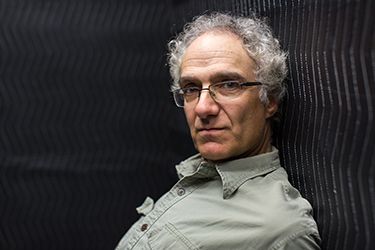Behind the Music: Bret Werb and Shoah Songs
This series will introduce the scholars and musicians who will participate in USC Shoah Foundation Center for Advanced Genocide Research’s international workshop Singing in the Lion’s Mouth: Music as Resistance to Genocide, Oct. 10-11, 2015. The event will include two days of programming that highlight the use of music as a tool to resist oppression and spread awareness, including film screenings, and academic symposium and a concert.

In the presentation given by Bret Werb, Music Collection Curator at United States Holocaust Memorial Museum (USHMM), attendees will have the chance to learn about and listen to some of these so-called “Shoah topical songs.” Werb’s paper is titled “Censorship, Sabotage and Self-Subversion in the Yiddish Shoah Song” and it explores the common practice among concentration camp prisoners to write and sing songs about the horrific experiences they were going though at the time. Werb and his colleagues have collected over a thousand of these songs and believe they are valuable and illuminating forms of documentation of the Holocaust.
Werb said topical songs have long been a popular form of expression because while most people can’t write music, nearly anyone can put words to an existing melody. During the Holocaust, writing and singing songs was not merely a way for prisoners to pass the time, but also a way to document what was happening to them.
“This is what the people going through these experiences used to express what was happening, and to try to assure that some of these occurrences could be remembered even if they didn’t survive the war,” he said.
But listeners may be surprised by the content of some of the songs. Werb said the lyrics often demonstrate anger or aggression toward fellow Jews who the singer believes have more privilege, or others who are not necessarily the direct cause of their misery. “When you have a very limited worldview if you’re a prisoner, it’d be natural to attack the person you perceive as your nearest enemy rather that the one who is openly the cause of your troubles,” Werb said.
The workshop at USC will be an opportunity for Werb to present Shoah topical songs as a valid form of documentation in modern Holocaust and genocide studies. People began collecting these songs even before World War II was completely over, he said, and they were one of the first sources of documentation of the Holocaust until other, more tangible forms of evidence, like artifacts and photographs, took over the scholarship.
Werb said he is looking forward to attending the other workshop sessions, and hopes that attendees begin to appreciate Shoah topical songs’ place within the broader context of prisoner songs, protest music and music as resistance to genocide.